Education authority provide emergency support in schools over suicide rate
- Published
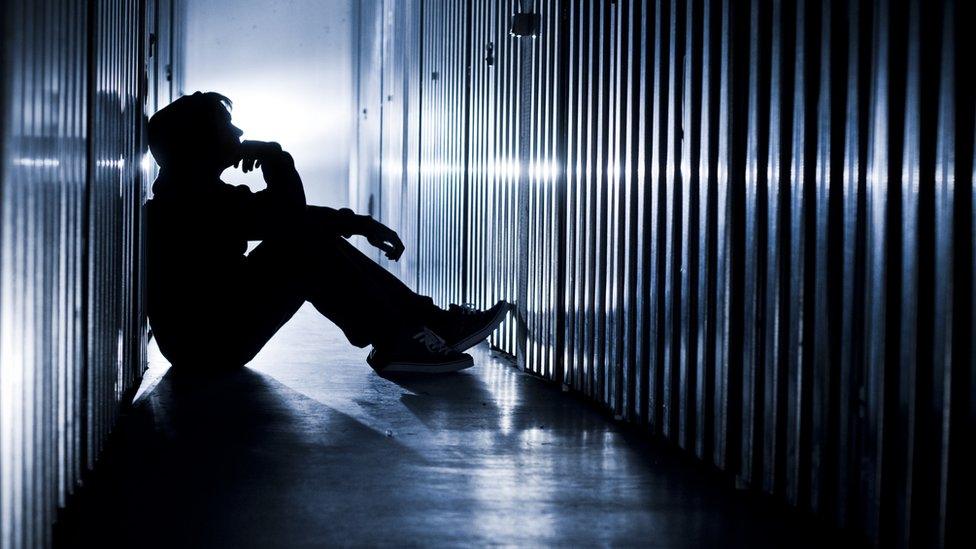
The Education Authority revealed the figures to Stormont's education committee
Emergency support has been provided by the Education Authority (EA) after 25 suicides and sudden deaths in schools since September 2017.
The figures were revealed to Stormont's education committee on Wednesday.
Nicola Topping said the authority's critical incident response team would help schools in "sudden-death type situations."
Separately, an MLA on the committee described the amount of counselling provided to pupils as "shocking".
MLAs on the committee heard evidence on mental-health and emotional well-being.
Ms Topping was responding to a question from the SDLP MLA Daniel McCrossan, who said he had been to three recent funerals of pupils who had taken their own lives.
Mr McCrossan asked what support services were in place for pupils if a fellow pupil killed themselves.
'Devastating impact'
"All of us have seen it in our own respective constituencies where there is a suicide in a school and that has a knock-on effect to an entire year group," he said.
"Last summer I attended the funerals of three young people who were very close friends who took their own lives very close together."
Mr McCrossan said that could have a devastating impact on a school.
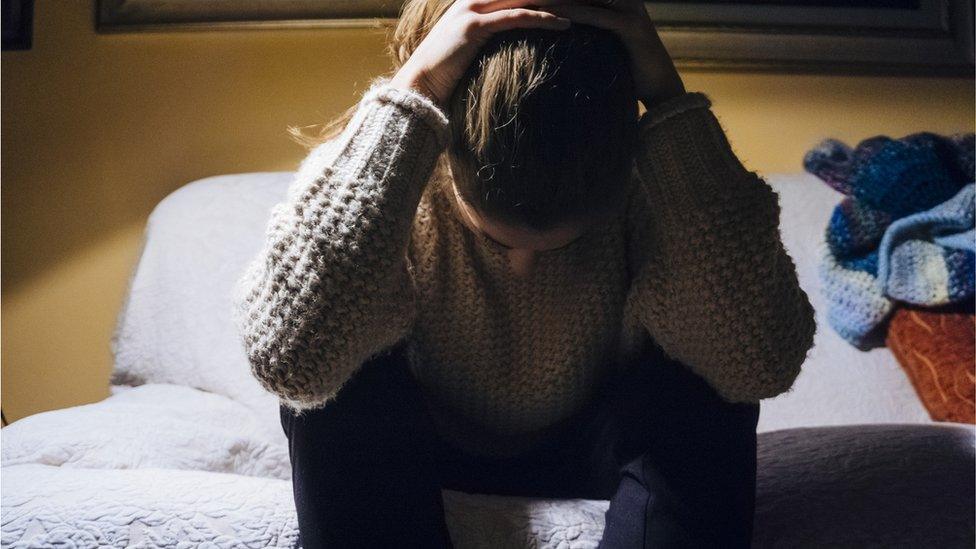
Ms Topping said in the past three years the critical incident response team "has responded to 141 critical incidents"
In response, Ms Topping said the EA's critical incident response team would visit a school after an event such as a suicide to provide support or counselling.
The team provides extra support to the school's existing pastoral care team in the event of the serious injury or death of a pupil, member of staff or member of the school community.
"Over the past three years the critical incident response team has responded to 141 critical incidents," Ms Topping said.
She told Mr McCrossan 25 of those were in "sudden-death type situations such as you're describing."
Ms Topping also detailed how many counselling sessions were available to post-primary schools on a weekly basis.
A new Independent Counselling Service for Schools service was introduced in September 2019 at a cost of £23.6m over five years.
Ms Topping said the number of pupils that could be seen for counselling depended on the size of their school.
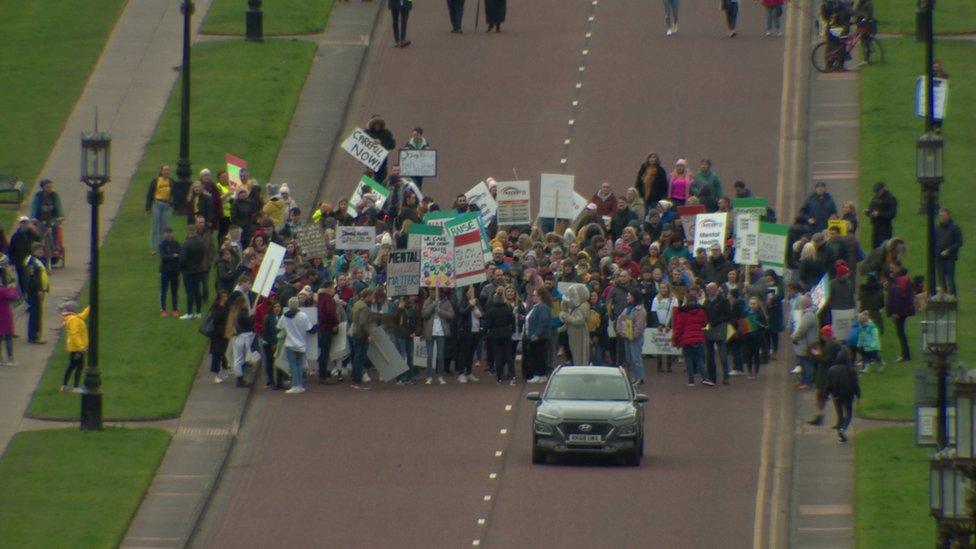
Earlier this month protesters gathered at Stormont calling for better mental health provisions in Northern Ireland
In post-primary schools with fewer than 499 pupils, three pupils per week could receive a counselling session in addition to one "drop-in" session.
In schools with 500 to 999 pupils, five pupils a week could receive a counselling session, while that rose to eight pupils a week in schools with pupils from 1000 to 1499 pupils.
In the largest schools, with over 1500 pupils, 10 pupils could receive a counselling session each week in addition to a drop-in session.
'Shocking'
"Inevitably there may be some waiting list behind that," Ms Topping said.
"We are largely constrained by the funding in relation to what we are given to provide the counselling service."
In response, the Sinn Fein MLA Karen Mullan described the level of counselling schools got as "shocking".
"Listening to those figures it's actually more shocking for me to hear that in a size of a school of one thousand children there's five sessions per week," Ms Mullan said.
If you've been affected by issues raised in this video, there is information and support available on BBC Action Line.
- Published22 January 2020
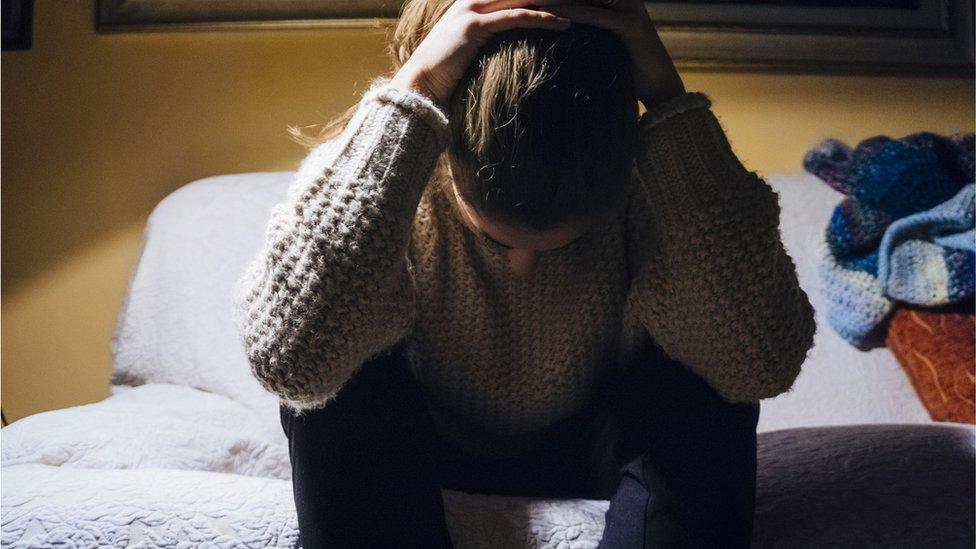
- Published1 February 2020
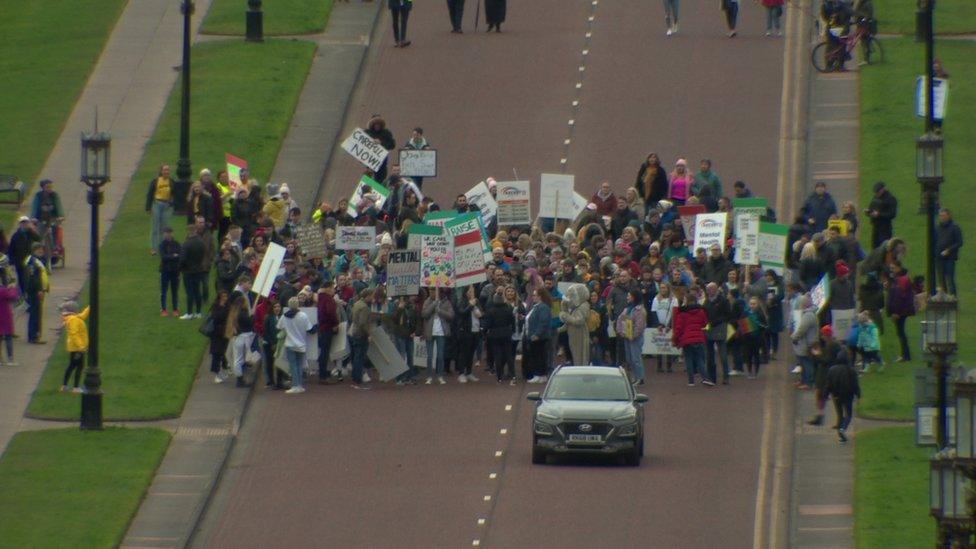
- Published22 January 2020

- Published22 January 2020
